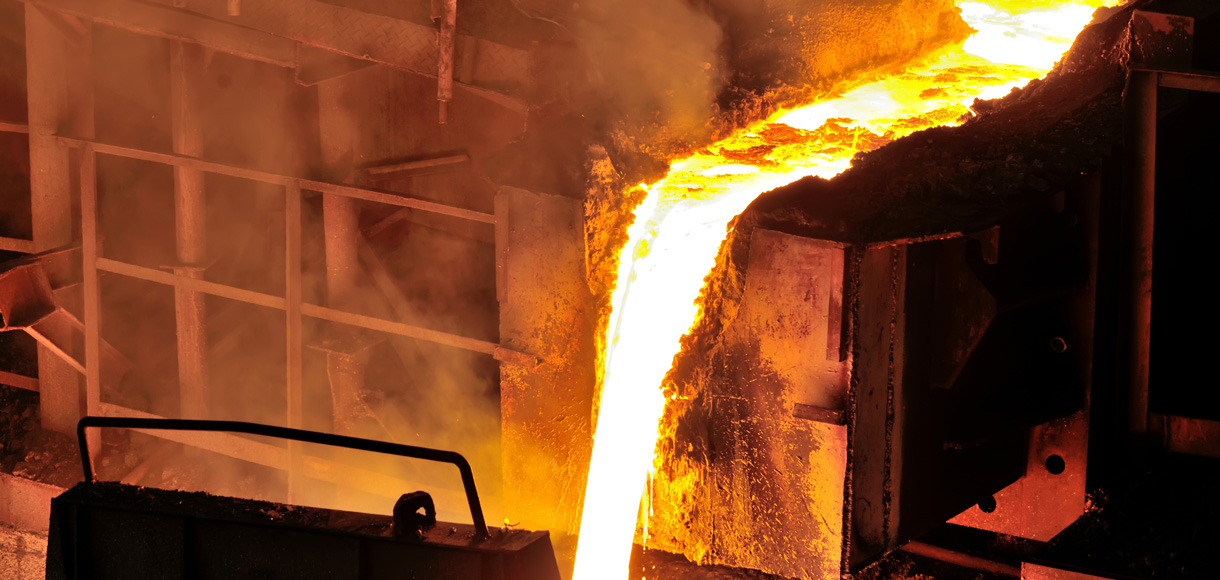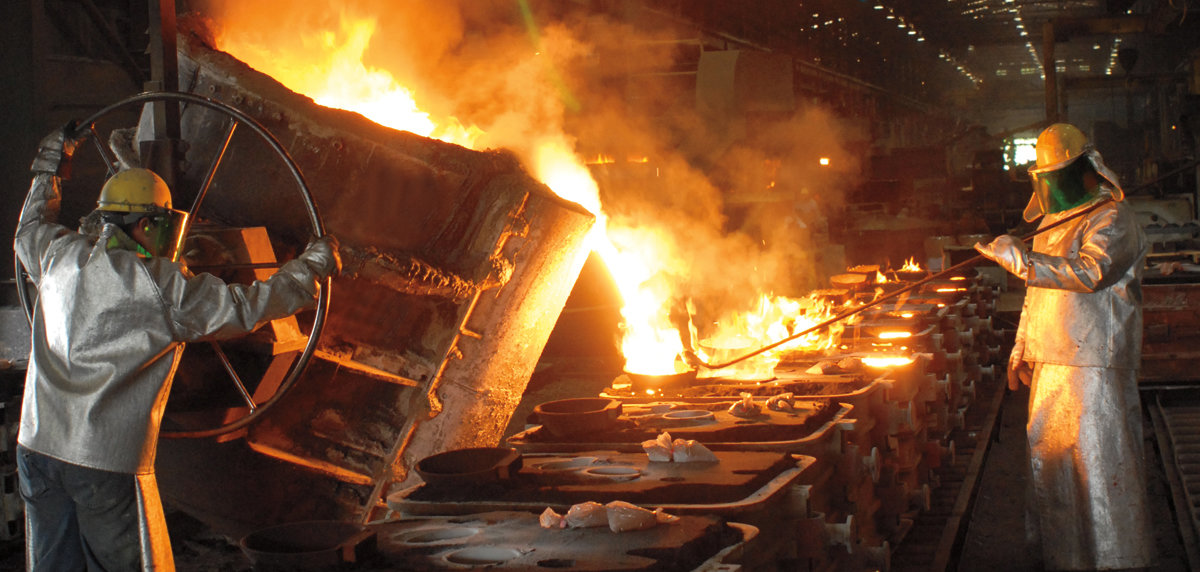The science and precision behind modern Aluminum Casting application
Wiki Article
Discover the Diverse Solutions Offered by Steel Factories in Todays Market
Steel foundries play an important role in modern-day manufacturing by offering a variety of services tailored to fulfill commercial needs. They use strategies like sand spreading and precision machining to create intricate parts. Personalized alloy growth additionally boosts item performance. However, quality assurance and sustainability are increasingly coming to be centerpieces in the industry. Recognizing these varied services discloses the substantial effect foundries have on manufacturing performance and ecological responsibility. What else could be affecting their evolution?Steel Casting Techniques: An Overview
Metal spreading techniques embody a blend of creativity and design, transforming liquified steel right into accurate forms and kinds. These methods have actually evolved over centuries, adapting to technological innovations and the varied needs of numerous industries. Amongst the most typical methods are sand spreading, which utilizes sand mold and mildews; investment casting, known for its detailed designs; and pass away spreading, which employs high pressure for quick production.
Each method uses one-of-a-kind advantages, such as expense efficiency, accuracy, and the capability to deal with different steel kinds. Sand casting is especially preferred for its versatility and convenience of use, whereas financial investment casting masters generating detailed elements. Die spreading, on the various other hand, is perfect for high-volume manufacturing, making certain uniformity and fast turn-around. Jointly, these methods play an important role in producing parts for vehicle, aerospace, and equipment sectors, showcasing the intricate connection between style and performance in metalworking.

Precision Machining Solutions
Precision machining services provide high accuracy and consistency in the fabrication of complex parts across various industries - Aluminum Casting. These solutions are necessary for generating components that call for complex styles and tight tolerances, ensuring that they meet stringent top quality criteria. Advanced machining techniques, consisting of CNC milling, transforming, and grinding, enable steel factories to produce components with phenomenal information and finishUtilizing modern equipment, precision machining can take care of a wide variety of products, including plastics, steels, and composites. This flexibility permits markets such as aerospace, auto, and clinical to gain from customized services that boost item performance and reliability.

Custom-made Alloy Development
Customized alloy advancement plays a necessary role in meeting the certain requirements of numerous industrial applications. Steel foundries participate in developing customized alloys that satisfy unique efficiency standards, such as strength, corrosion resistance, and thermal conductivity. By making use of innovative metallurgical techniques and simulations, these foundries can develop alloys that improve the total performance of items throughout diverse markets, consisting of aerospace, auto, and electronic devices.Collaboration between foundries and clients is significant in this process. Engineers and metallurgists collaborate to determine wanted buildings, permitting precise adjustments in composition and processing methods. This bespoke approach not just maximizes material efficiency but likewise adds to cost performance by minimizing waste and maximizing resource use.
In the affordable landscape of contemporary manufacturing, custom-made alloy advancement is a crucial solution that equips organizations to innovate and preserve an one-upmanship while addressing specific functional difficulties properly.
Quality Assurance and Testing Procedures
Ensuring the highest possible requirements of top quality control and screening procedures is important for metal shops to provide dependable items. These treatments generally include an array of methods developed to assess the honesty and performance of metal castings. Foundries use different screening strategies, including aesthetic examinations, mechanical residential or commercial property evaluations, and non-destructive screening methods such as radiographic and ultrasonic evaluations.Product structure is carefully examined using spectrometric approaches to confirm adherence to defined you can try here alloy criteria. Furthermore, thermal evaluation may be carried out to check solidification patterns and predict mechanical residential properties.
Documentation of each testing stage is vital, as it supplies traceability and guarantee that the products satisfy sector policies and customer assumptions. By applying strict quality control processes, metal shops not just boost product reliability but also foster count on with clients, keeping a competitive edge in the industry.
Sustainability Practices in Steel Foundries
As markets progressively focus on environmental obligation, metal shops are adopting sustainability techniques that reduce their environmental impact. Several shops are implementing closed-loop systems to reuse products, reducing waste and conserving resources. This strategy not only decreases the demand for basic materials however also lowers power intake throughout manufacturing.In addition, some shops are purchasing energy-efficient modern technologies, such as electrical furnaces and progressed cooling down systems, which substantially lower greenhouse gas discharges. Using green spreading materials and additives further boosts sustainability by decreasing unsafe ecological influences.
Water conservation is another essential focus, with shops employing recirculation systems to limit water use. Furthermore, waste monitoring approaches, including the recycling of sand and metal scrap, are becoming basic technique. next By incorporating these sustainability steps, steel factories are positioning themselves as liable players in the production industry, aligning with international initiatives to promote a more lasting industrial landscape.
Often Asked Questions
What Industries Generally Usage Metal Shop Services?
Different sectors use steel factory solutions, including auto, building, power, and aerospace fields. These industries count on shops for customized metal parts, casting solutions, and high-grade materials crucial for their manufacturing procedures and product advancement.Just How Can I Select the Right Shop for My Project?
To choose the ideal foundry, one ought to review factors such as field of expertise, credibility, modern technology, quality assurance procedures, distribution timelines, and customer care. Performing extensive study and looking for useful content referrals can further direct the decision-making process.What Is the Typical Lead Time for Casting Orders?
The ordinary preparation for casting orders generally ranges from four to twelve weeks. Elements influencing this timeline include order intricacy, shop ability, and product accessibility, which can vary substantially among various foundries.
Are Steel Factories Efficient In Producing Small Batch Runs?

What Safety Measures Are Implemented in Metal Foundries?
Steel factories execute various safety actions, consisting of individual protective equipment, air flow systems, regular training, emergency action methods, and rigorous adherence to safety and security regulations to lessen hazards connected with liquified metal handling and workplace crashes.Metal foundries play an important duty in contemporary manufacturing by supplying a selection of services customized to satisfy industrial needs. Metal foundries involve in developing tailored alloys that provide to unique efficiency criteria, such as stamina, rust resistance, and thermal conductivity. Making sure the highest requirements of top quality control and testing procedures is important for steel shops to deliver trusted products. As markets progressively focus on ecological responsibility, steel shops are taking on sustainability practices that lessen their ecological footprint. Different sectors make use of metal foundry services, consisting of vehicle, aerospace, energy, and building and construction markets.
Report this wiki page